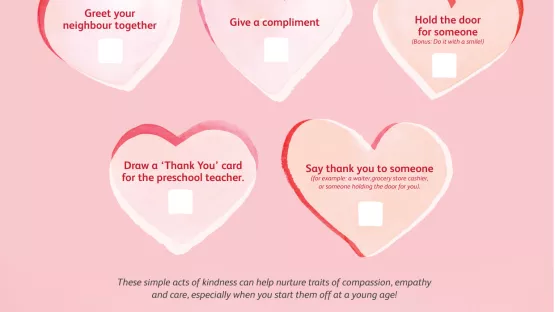
Protect Your Child From Traveller’s Diarrhoea
Traveller’s Diarrhoea is an infection in the intestinal tract that can.... read more

Compassion, empathy, and care – these traits are in children from early on. However, children need adults to nurture and fully develop these traits. The younger they are nurtured, the better they will be able to absorb these lessons. These are some steps to lead your child towards these admirable traits.
It starts at home
It has been said that the apple doesn’t fall far from the tree. There’s some truth to it, isn’t there?. So, when your child sees you showing compassion and treating everyone with kindness, you are showing them to prioritise friendship and positivity. You can show “care” by demonstrating the following.
Knowing me, knowing you
When your children feel loved, they will become more attached to you. This makes your children more receptive of your values and teaching. You could build a bond with your children through nightly bedtime reading, or perhaps schedule a weekly one-on-one time. Ask your children about what they are thinking, feeling and experiencing. Take this as a two-way activity, rather than you asking the questions all the time. From time to time, share stories about yourself and show that you are also learning, just as they are learning too.
Unintentionally or intentionally unkind
There is a need to point out when someone is mean-spirited and follow-up by explaining why a particular action is mean. Share with your children that is possible to make bad choices or decisions, but still be a good person.
If your children made a mistake, advise him or her to make amends. If a mistake is made by you and it affects your children, speak to them on why you think you made the mistake and apologise for it. Take it one step further, by explaining how you will try to avoid making the same mistake.
Love is all around!
Show your love by tending to your children’s emotional and physical needs, providing a stable and loving family environment, respecting their individual personalities, taking a genuine interest in their lives, and encouraging their efforts, no matter how small.
If there are problems, work together to arrive at a solution. This way, your role as someone who has all the answers all the time, changes to that of someone who supports learning, and self-discovery.


